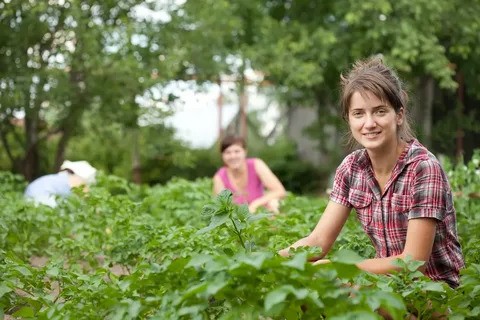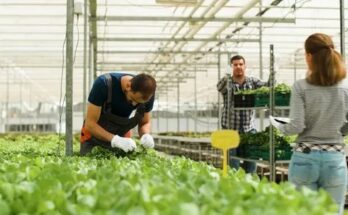Malta Farm Jobs
Malta, a sun-drenched archipelago in the Mediterranean, is renowned for its ancient temples, crystal-clear waters, and vibrant culture. Yet beneath its tourist-friendly façade lies a rich agricultural heritage that has sustained its communities for millennia. Today, farm jobs in Malta offer a unique blend of tradition and modernity, providing opportunities for locals and foreigners alike to engage with the island’s fertile landscapes. This article delves into Malta’s agricultural sector, the types of farm jobs available, the challenges faced by workers, and the future of farming on these storied islands.
The Agricultural Landscape of Malta: A Historical Perspective
Malta’s relationship with agriculture dates back over 7,000 years. The islands’ fertile soil and mild climate allowed early settlers to cultivate crops like wheat, olives, and grapes, forming the backbone of their diet and economy. Terraced fields, dry-stone walls, and ancient irrigation systems still dot the countryside, particularly in rural areas like Gozo and the Maltese villages (known as irwieħel).
However, modernization and urbanization have reshaped the sector. Today, agriculture contributes just 1.2% of Malta’s GDP and employs around 2% of the workforce, according to recent EU reports. Most farms are small, family-run operations averaging 1.5 hectares, though larger commercial farms specializing in greenhouse crops, dairy, and poultry are on the rise. Key crops include potatoes, tomatoes, onions, and Malta’s prized prickly pear (bajtar tax-xewk). Livestock farming, particularly goats and sheep, remains integral to local cheese production like ġbejna.
Despite limited land and water resources—Malta relies heavily on desalination—the sector persists through innovation, EU funding, and a renewed interest in sustainable practices.
Types of Farm Jobs in Malta
From hands-on fieldwork to tech-driven roles, Malta’s agricultural jobs cater to diverse skill sets. Here’s a breakdown of common positions:
- Farm Laborers
The backbone of the industry, laborers engage in planting, harvesting, pruning, and irrigation. Seasonal peaks occur during potato and grape harvests (spring and autumn). Many workers come from EU countries like Bulgaria or Romania under temporary contracts. - Livestock Handlers
Roles include feeding, milking, and caring for animals. Dairy farms in Gozo and sheepherding in Mġarr offer year-round work, requiring knowledge of animal health and hygiene. - Agricultural Technicians
With Malta investing in hydroponics and vertical farming, technicians skilled in greenhouse management, irrigation systems, and pest control are in demand. Familiarity with sustainable practices (e.g., drip irrigation) is a plus. - Equipment Operators
Modern farms use tractors, harvesters, and tillers. Operators need mechanical skills and certifications, often provided through vocational programs. - Agritourism Specialists
Malta’s agritourism boom has created roles in farm-stay management, wine tours, and organic markets. Responsibilities include guest services, event planning, and marketing. - Supervisory Roles
Farm managers oversee daily operations, budgeting, and compliance with EU regulations. Fluency in Maltese and English is often required.
Requirements for Farm Work in Malta
- Skills and Experience: Entry-level roles require physical stamina and adaptability to outdoor work. Technical positions demand certifications in agriculture or mechanics.
- Language: Maltese is preferred for local hires, but English suffices in international or seasonal roles.
- Work Permits: Non-EU nationals need a permit, typically arranged by employers. EU citizens enjoy freedom of movement.
- Climate Resilience: Workers must tolerate Malta’s hot summers and occasional heavy rains.
How to Find Farm Jobs in Malta
- Online Platforms: Websites like JobsPlus and EU portals like EURES list vacancies. Social media groups (e.g., “Expats in Malta”) also share opportunities.
- Government Programs: Malta’s Ministry for Agriculture offers apprenticeships and grants for young farmers.
- Networking: Visiting local markets or farms in areas like Żebbuġ or Xagħra (Gozo) can lead to informal job offers.
- Agritourism Ventures: Apply directly to businesses like Ta’ Mena Estate or Meridiana Wine Estate for hospitality-focused roles.
Challenges in Maltese Agriculture
- Labor Shortages: Youth often overlook farming for tourism or tech jobs, relying on foreign seasonal workers.
- Climate Change: Erratic weather and water scarcity threaten crop yields.
- Import Competition: Over 70% of Malta’s food is imported, undercutting local produce.
- Land Pressure: Urban sprawl and solar farm installations reduce arable land.
Opportunities and Innovations
- EU Funding: Malta benefits from the Common Agricultural Policy (CAP), funding eco-schemes and rural development.
- Organic Farming: Demand for organic produce is rising, with farms like Golden Valley expanding into niche markets.
- Tech Integration: Startups are piloting AI-driven irrigation and drone monitoring to optimize resources.
- Agritourism: Farms are diversifying into workshops, festivals, and farm-to-table dining, creating hybrid roles.
Voices from the Fields: Worker Testimonials
Maria, a Gozitan dairy farmer: “Farming is hard, but the connection to our land is priceless. We’ve started offering cheese-making classes to tourists, which helps supplement income.”
Ahmed, a seasonal worker from Egypt: “The work is tough, but the pay supports my family back home. Maltese farmers treat us fairly.”
Malta Farm Jobs
Farm jobs in Malta are more than just employment—they’re a gateway to preserving the islands’ heritage and embracing sustainable growth. While challenges like climate change and labor shortages loom, innovation and community spirit keep the sector alive. Whether you’re a tech-savvy agronomist or a traveler seeking hands-on experience, Malta’s fields offer fertile ground for growth.
As the Maltese say, “Il-ħajja tal-bdiewa hija qaddisa” (The farmer’s life is sacred). In a world increasingly disconnected from its roots, Malta’s agricultural sector reminds us of the enduring value of working the land.
FAQs
- Q: Are farm jobs in Malta open to foreigners?
A: Yes, especially seasonal roles. EU citizens need no permit; non-EU nationals require employer sponsorship. - Q: What’s the average wage for farm work?
A: Entry-level roles pay €800–€1,200/month; skilled technicians earn up to €1,800. - Q: Is accommodation provided?
A: Some seasonal jobs include housing, particularly in remote areas like Gozo.



